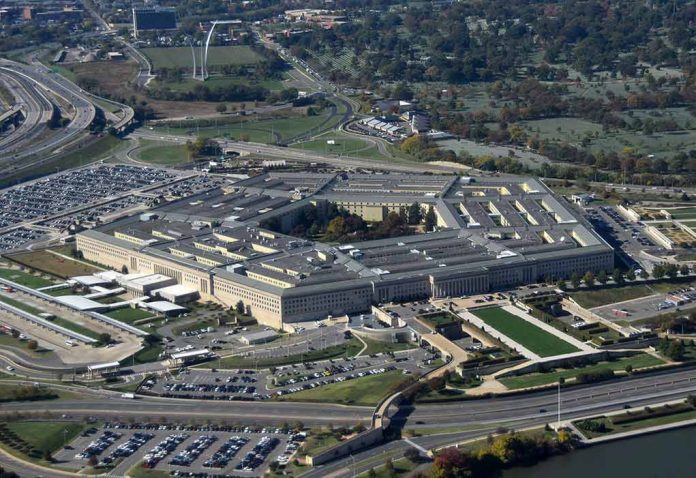
The Pentagon fails its seventh consecutive audit, unable to account for $824 billion of its budget, raising concerns about fiscal responsibility and government oversight.
At a Glance
- The Pentagon failed its seventh consecutive audit, unable to fully account for its $824 billion budget.
- The Department of Defense received a disclaimer of opinion, indicating insufficient information for auditors.
- Only 9 out of 28 entities within the Pentagon received unmodified (clean) audit opinions.
- The goal is to achieve an unmodified audit opinion by 2028, as mandated by the 2024 National Defense Authorization Act.
- The audit cost $178 million and involved approximately 1,700 auditors.
Pentagon’s Ongoing Audit Struggles
The U.S. Department of Defense, the largest arm of the federal government, has once again failed to pass its annual audit. This marks the seventh consecutive year that the Pentagon has been unable to fully account for its massive $824 billion budget, raising serious concerns about fiscal responsibility and government oversight.
The audit, which involved 28 separate entities within the Department of Defense, resulted in a disclaimer of opinion for the overall department. This means that auditors did not have sufficient information to form an accurate opinion on the Pentagon’s financial statements. Out of the 28 entities reviewed, only nine received unmodified (clean) opinions, while one received a qualified opinion, 15 received disclaimers, and three are still pending.
Pentagon fails 7th audit in a row, unable to fully account for $824B budget https://t.co/VKjIhCByZy
— Fox News (@FoxNews) November 17, 2024
Efforts to Improve Financial Management
Despite the disappointing results, Michael McCord, under secretary of Defense comptroller, maintains that progress is being made. He emphasized that the Department of Defense is committed to achieving a clean audit by 2028, as mandated by the 2024 National Defense Authorization Act.
“Momentum is on our side, and throughout the Department there is strong commitment — and belief in our ability — to achieve an unmodified audit opinion,” McCord said in a statement.
McCord highlighted several areas of improvement, including the fact that eight agencies have enhanced their financial management systems and are now able to balance their funding with the Treasury Department. Additionally, the Pentagon has improved from less than 7% to over 82% of its funding being free of material weaknesses since 2021.
Challenges and Criticisms
The Pentagon’s ongoing audit failures have drawn criticism from various quarters, including lawmakers and watchdog groups. The sheer size and complexity of the Department of Defense, with its numerous systems and operations, present significant challenges for accurate accounting and financial management.
“I do not say we failed, as I said, we have about half clean opinions. We have half that are not clean opinions. So if someone had a report card that is half good and half not good, I don’t know that you call the student or the report card a failure. We have a lot of work to do, but I think we’re making progress,” McCord added.
Critics argue that the Pentagon’s inability to pass an audit raises questions about the effectiveness of its financial controls and the potential for waste, fraud, and abuse within the defense budget. Some have called for more stringent oversight and consequences for continued audit failures.
The Path Forward
To address these ongoing challenges, the Department of Defense is focusing on several key areas for improvement. These include modernizing the workforce, enhancing financial data systems, and increasing system interoperability. The goal is to create a more transparent and accountable financial management process within the department.
As the Pentagon continues its efforts to achieve a clean audit, taxpayers and lawmakers alike will be watching closely to ensure that progress is made and that the Department of Defense can eventually provide a full and accurate accounting of its massive budget. The success of these efforts will be crucial in maintaining public trust and ensuring the effective use of taxpayer dollars in national defense.














